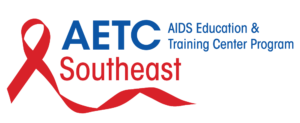How Stigma Leads to Sickness
Segment One of Cultural Humility & Reducing Stigma and Discrimination Resources
Adherence to HIV care and treatment recommendations is essential for ensuring health, longevity, and a suppressed viral load among people living with HIV (PLWH). A growing body of literature suggests that fears and experiences of HIV-related stigma not only affect the quality of life and mental health of PLWH but are also related to poor engagement in HIV care and treatment.
Click on any of the tabs below for additional information.
- Session Resources
- Video Module
- Group Activity
- Dimensions of HIV-Related Stigma
- Additional Resources & References
Click on the links below to download any of the resources.
- Leader Guide (PDF)
- Handout: Stigma Dimensions (PDF)
- Handout: Reducing Stigma With Language (PDF)
- Handout: Quote Cards (4″ x 3″) (PDF)
Step 1
Hand the cards 1-6 out to six volunteers.
Step 3
Ask a volunteer to read their quote and discuss the following with your group after each statement.
- The dimensions of HIV-related stigma
- How these dimensions affect health outcomes/li>
Hearing different voices read these real quotes from people with HIV helps reinforce understanding and maintains group focus.
Step 4
Pass out additional resources.
- Handout: Stigma Dimensions (PDF)
- Handout: Reducing Stigma With Language (PDF)
Enacted Stigma
Manifests as Discrimination
“They look at you funny… the’re scared to touch behind you, sit behind you.” – (Man/Woman living with HIV, Alabama, FRESH Study focus group)
Community Stigma
Perceptions of Community Norms
Perceptions of high levels of HIV-related stigma in the community can have negative effects on PLHIV.
Anticipated Stigma
Manifests as Fear
“In [town], you might get jumped on if they find out.” – (Man/Woman living with HIV, Alabama, FRESH Study focus group)
Internalized Stigma
Manifests as Self-stigma
“Feels like nobody wants you, very alone, lonely.” – (Man/Woman living with HIV, Alabama, FRESH Study focus group)
Resources
References
